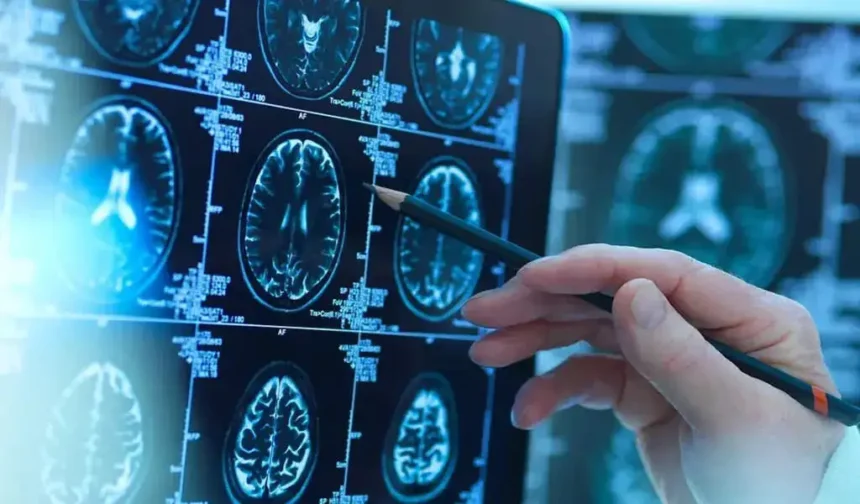(CTN News) – New research suggests lithium, a naturally occurring metal, may protect the brain against Alzheimer’s disease and aging.
According to a study conducted by experts from Rush University and Harvard Medical School, mice fed a lithium-deficient diet showed an acceleration of aging signs as well as an increase in inflammation in their brains.
Nature, the leading scientific publication, published the findings on Wednesday.
The researchers found that lithium may be required for the preservation of optimal brain function. The study compared normal mice to animals engineered to acquire Alzheimer’s-related brain abnormalities, such as a buildup of sticky proteins.
Mice’s brain function improved after being treated a specific lithium molecule, lithium orotate. In contrast, rats fed a lithium-deficient diet developed difficulties more quickly.
The number of beta amyloid plaques, which are sticky protein concentrations, as well as memory impairments, were reduced in mice treated with lithium orotate. Plaques of this type are associated with Alzheimer’s disease in humans.
Lithium is a drug commonly used to treat mental health problems such as bipolar disorder and depression. It has been in use for a long time. In contrast, the findings of this study indicate that magnesium, which may be essential for proper brain function, is naturally present in the body in extremely low concentrations.
Lithium is thought to be inhibited from reaching the brain cells that need it by beta amyloid, which adheres to it.
Alzheimer scientists have the following hypothesis.
Microglia cells, which are in charge of removing waste from the brain, become dysfunctional when there is a lack of lithium supply. As a result, a feedback loop is developed in which the accumulation of beta amyloid limits the quantity of lithium available, affecting the brain’s ability to clear dangerous proteins.
During the first phase of the study, researchers studied brain tissue and blood samples from Alzheimer’s patients and individuals who did not have the illness.
The researchers investigated 27 different metals and observed a major difference: people with memory deficits had much lower levels of lithium in their brains. They repeated the test using brain samples from several hospitals and universities, and the results were the same.
Dr. Bruce Yankner, a genetics professor at Harvard University, told CNN, “We were initially skeptical of the outcome because it was unexpected.” Experts strongly advise against administering lithium tablets without first speaking with a physician.
According to the findings of this inquiry, the quantities utilized were nearly a thousand times smaller than those used to treat mental diseases such as bipolar disorder. A Alzheimer rodent doesn’t exist. Yankner advises that no one should depend only on rodent research findings.
Our research on lithium therapy was conducted on mice, but it is critical that the study be duplicated in humans. He kept going: “It is imperative that we determine the appropriate dosage for humans.”
Overall, the results are pretty good. Mice were given a tiny dose of lithium orotate, and they showed no signs of organ harm or toxicity. Yankner’s human testing will begin soon.
Lithium is found in many nutritious foods. The following are as follows.
Green, verdant foods
It contains legumes and almonds.
Cumin and turmeric are two of the few seasonings.
Various kinds of mineral water
Previous studies have shown that lithium has a number of favorable qualities. A large Danish study revealed that high levels of lithium in municipal water were connected with a lower risk of detecting dementia. The researchers came at this conclusion.
A second study conducted in the United Kingdom discovered that people who were given lithium had a fifty percent lower risk of getting Alzheimer’s disease than those who were not given lithium. Ashley Bush, an Australian neuroscientist, wrote an editorial shortly following the release of the new discovery.
The author argues that it offers “strong evidence that lithium does, in fact, play a physiological role and that the brain’s ability to regulate lithium levels may be influenced by normal aging.”
Yankner recognized the potential advantage of the situation.
According to an interview with CNN, “It is a potential candidate for a shared mechanism that leads to the multisystem brain degeneration that precedes dementia.”
He then remarked, “To determine if there is a common channel… or one of several pathways” to Alzheimer’s disease, a significant amount of more research will be required.”The content is absolutely intriguing.
SOURCE: USN
SEE ALSO:
Dairy Farms Are Susceptible to Bird Flu Spreading Through Air and Wastewater
Legionnaires Disease Outbreak in New York Raises Concerns Over Water Safety















